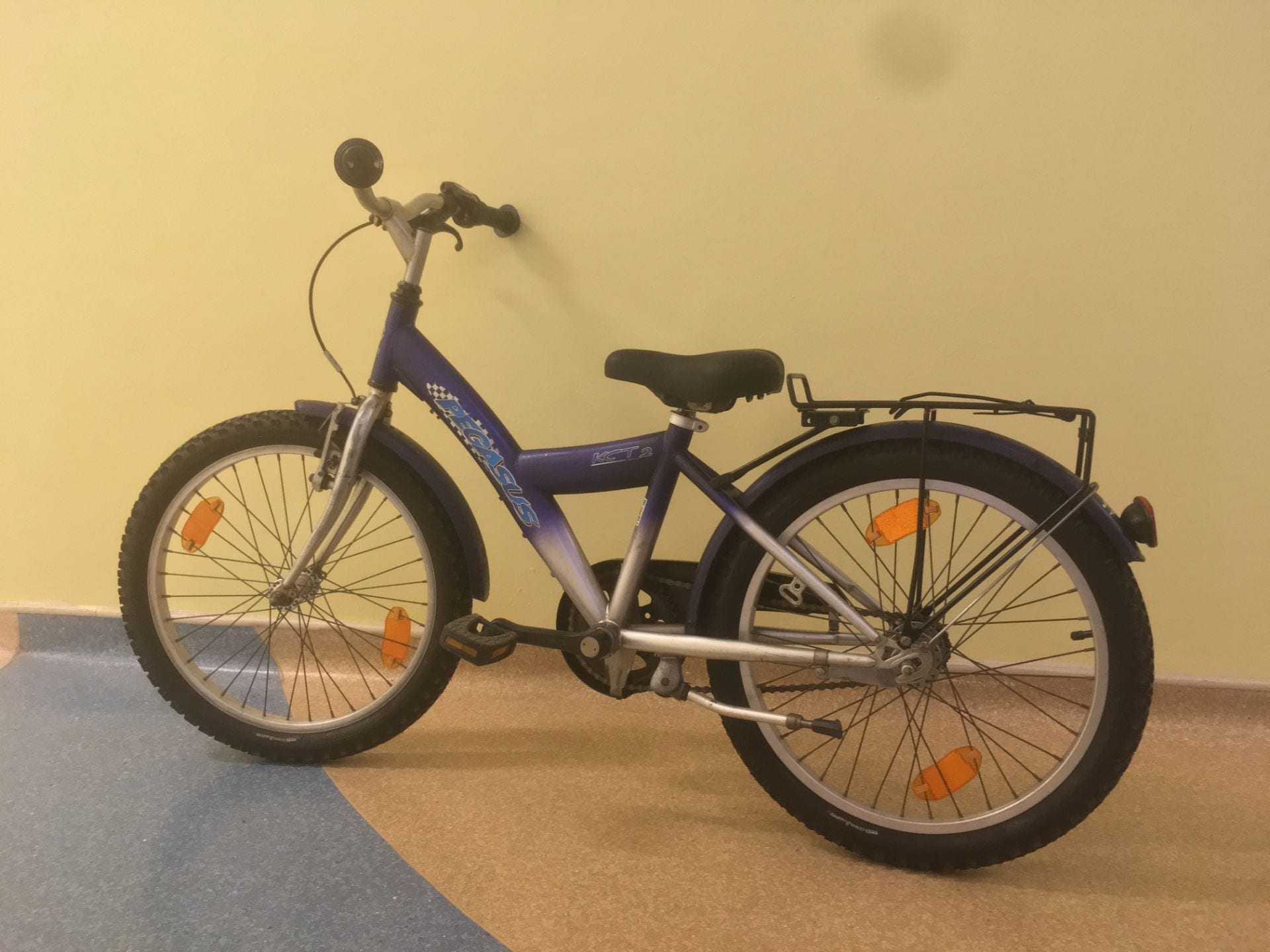Writers Fortnight was one of the most abstract experiences me might experience in IGCSE. Attending the talks from the guest speakers and the teachers was something that we don’t usually experience, so being able to listen to their experiences in many parts of the world is surely an eye-opening opportunity. Writing my article, I was in contact with Mr. Stirrat, a runner in the 2014 Marathon Des Sables. He talked a gruelling and almost unimaginable experience, and how he almost brushed with death. He has truly one of the greatest stories from the MDS, and it is a pleasure to be able to write about it in detail, even including some of the images from the marathon itself ;).
Month: March 2019
ReCycle: An Unusual Service
ReCycle is one of the most bizarre but fun service.
Being able to take in an abandoned, rusted and practically worthless bicycle and make it into one which can be used by any child in a local service.
“Pegasus” Bike at the very beginning of the service”
We took one very nice but rusted bike and radically changed it. Starting with a new chain, inner tyre tubes, brake wires, and a good cleaning. Once everything was reassembled, it is now ready to go and be sent off to a local service partner, ready to be used by some energetic children with big hopes and dreams.
“Pegasus” after all the cleaning and rearranging
Colleague to Life Saver
How a person can completely change your life
You’ve just signed up for one of the most gruelling challenges of your life. 3 months preparing for one event which will push you to your limits. The Marathon Des Sables (MDS) is a 6 day, 250 km ultra-marathon held in Morocco annually. Around 1000 participants attend the race, and Mr. Stirrat attended one of the races. A day before the start, all the participants are bused to the desert to get ready for the start and to organize all their materials.
Ken Stirrat and other participants on a stage of the marathon
Ken Stirrat, a math teacher at UWCSEA East, a competitive runner as a child had been looking for a challenge. One that would push him to his limits, testing what he previously thought was doable with his own body. MDS was the perfect challenge, as he had already had some experience running in desert-like conditions. At his talk during Writer’s Fortnight, I asked a question “How confident were you about completing the marathon?” 50% confident was how he felt at the start of the race, the very first leg, the part of the marathon that would make you doubt yourself about finishing, and getting a ‘very nice’ introduction to the marathon. At the end of the first leg (~40km), he felt a touch more confident as he survived the first day. He reportedly threw away many of the ‘luxuries’ that he brought along with him on the rucksack, generally due to weight saving (this is due to the fact that all the participants have to carry their own food for the entire trip as well as the water for the day).
The Third day comes along, the longest stage of them all (91 km). A couple of kilometres from the finishing line, a sudden urge to stop. Exhaustion hits hards, and even stranger, all the water or food you take in is just getting vomited out again. Something was clearly wrong, and no knowledge whatsoever on what’s going on. At this point, he can barely continue anymore, and collapses under a tree, providing all the shade it can.
Maz, a friend of Ken who he met just 4 days back, ended up ‘rescuing’ him by helping him get on his feet, and finally walking with his arm around Maz’s neck to the next checkpoint. Doctors without Borders had helped in providing most of the medical support for the event, and Ken went immediately to see them. At first, all of the 8 beds set up were taken, and pretty much all of the participants occupying the beds were in ‘much worse shape’ then Ken himself (a patient was nearing cardiac arrest, and had to be airlifted out of the camp). After getting checked out, it turned out to be a case of heat exhaustion, which was easily solved with a pill and plenty of water and food to be ingested. The next day after a good rest, he went off to complete the next stage, and ultimately the entire marathon.
Maz took the time and effort from his run to help Ken, an action that ultimately led to him finishing the marathon in a healthy way. I followed up with Ken on this and asked him ‘Do you think that friendships change in situations like this, regarding the actions someone might take (such as the one Maz took)?’ His response to this was “I think friendships can be really tested for the better and for the worse, in such dramatic circumstances. In normal day to day life, you really do know who your true friends are, those who are there for you.” I think most of us can relate to this in one way or another, as anyone can claim to be your friend, but in times when you need help, will they go out of their way and actually HELP you as a friend? I agree with Ken in his statement that in situations of near death or survival, the people who are really willing to help you and themselves at the same time are truly great friends.
Ken at the finishing line of the marathon, successfully marking the end of his toughest challenge yet.\
I also wanted to know “What if Maz skipped you, and chose to continue on with the race, who would have helped you then?” Ken hoped that out of human kindness someone else would have come and hopefully helped him, but no one really knows what could have happened otherwise.



